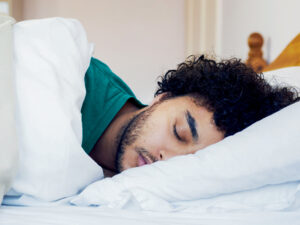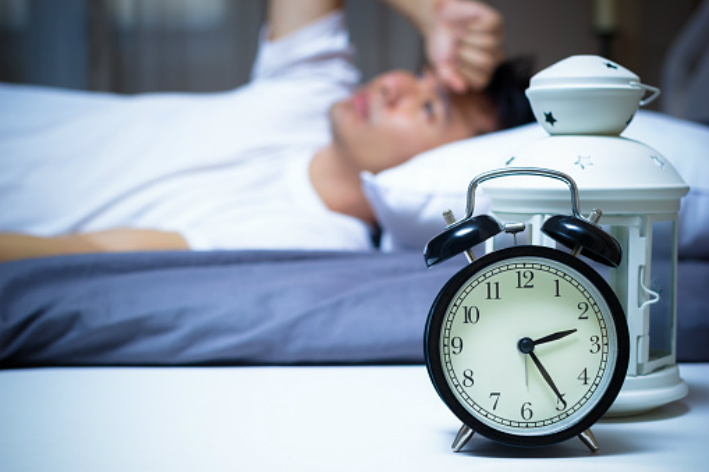Too little sleep can harm your mental and physical health, including impairing your ability to think clearly, concentrate and make decisions. In addition, people with ADHD are often struggling with insomnia because it’s one of the symptoms of the disorder. Read this blog to know all the detailed information on ADHD Insomnia.
Contents
What is ADHD Insomnia?

ADHD insomnia is a sleep disorder that is caused by the combination of symptoms of attention-deficit/hyperactivity disorder (ADHD) and insomnia.
According to the DSM-5, ADHD is an “inattention and hyperactivity disorder” characterized by problems with focus, hyperactivity, impulsiveness, and inattention. People with ADHD often have trouble staying focused on tasks and can be restless and impulsive. In addition to these symptoms, people with ADHD also commonly experience difficulty sleeping.
Insomnia is a common problem that affects almost everyone at some point in their lives. It’s a problem with falling asleep or staying asleep that leads to significant distress or impairment in daily activities. Insomnia can be caused by a variety of things, including stress, anxiety, depression, and chronic pain.
People with ADHD are more likely than other people to experience problems with sleep. Studies have shown that up to 50% of people with ADHD also suffer from insomnia.
The combination of ADHD symptoms and insomnia can be very confusing and frustrating for people who are struggling to get enough sleep. It can also be very hard to tell if you have ADHD and insomnia or if your insomnia is simply causing problems with your ADHD. If you are having trouble sleeping and you think you might have ADHD, it is important to talk to your doctor about your symptoms. Your doctor can help you diagnose the problem and prescribe the appropriate treatment for you.
The Connection Between ADHD Insomnia and ADHD
ADHD is a common disorder that affects about 7% of children and adults in the United States. It is characterized by problems with focus, hyperactivity, and impulsiveness. ADHD can lead to difficulties in school, social life, and relationships.
People with ADHD often have trouble falling asleep or staying asleep. This can make it difficult to get the sleep that you need to function well during the day. In addition, people with ADHD may have difficulty regulating their thoughts and emotions. This can lead to problems sleeping because they may be restless or stressed out.
There is a connection between ADHD insomnia and ADHD. People with ADHD are more likely to have problems sleeping due to their symptoms of ADHD. However, there is also evidence that people with ADHD are more likely to have problems with sleep due to other factors as well, such as stress and anxiety. Therefore, people with ADHD need to seek help for both their sleep issues and their ADHD symptoms.
There are many ways to improve sleep for people with ADHD. One important step is to find a treatment that works best for you. Some treatments that are helpful for people with ADHD include medication, therapy, and lifestyle changes. If you are struggling to get enough sleep, it is important to talk to your doctor about what options are available to you.
Causes of ADHD Insomnia

ADHD insomnia is a common symptom of ADHD and can be caused by several factors. Some of the most common causes of ADHD insomnia are:
1) Difficulty falling asleep. ADHD people often have trouble winding down and calming down at night, which can make it difficult to fall asleep.
2) Distraction from sleep-related activities. ADHD people often have a lot of energy and tend to be very active during the day, which can lead to difficulty falling asleep because they’re constantly thinking about things other than sleep.
3) Anxiety or stress. Anxiety or stress can cause feelings of restlessness and fatigue, both of which can lead to difficulty sleeping.
4) Trouble sustaining sleep. For some people, staying asleep can be a challenge regardless of the cause. If the person with ADHD insomnia has difficulties falling asleep or staying asleep for long periods, this may be a sign that there is something else going on that needs to be addressed.
5) Use of medications that can affect sleep. Certain medications can cause insomnia, including antidepressants and anxiety medications. If the person with ADHD insomnia takes any of these medications, it may be difficult to get a good night’s sleep.
6) Poor sleep habits. If the person with ADHD insomnia has a habit of staying up late or oversleeping in the morning, this can also be a contributing factor to difficulty sleeping.
7) Physical health conditions. Some physical health conditions, such as depression or anxiety, can also affect sleep. If the person with ADHD insomnia has another health condition that is causing them to have trouble sleeping, this may be an indication that they should see a doctor.
Solutions To ADHD Insomnia

Tara Moore/Getty Images
There is a great deal of research linking ADHD and insomnia, with many people blaming the two conditions as co-morbidities. Adhd can lead to excessive daytime sleepiness, while insomnia can worsen the symptoms of ADHD. To manage ADHD insomnia effectively, it is important to understand the connection between the two conditions and find solutions that work for you.
Here are some tips to help you get better sleep:
1. Make sure your bedroom is dark and quiet. Exposure to bright light and noise in the early hours of the morning can be disruptive to your circadian rhythm, leading to trouble sleeping later on.
2. Avoid caffeine before bedtime. Caffeine is a stimulant and can keep you up late. If you need to drink coffee before bed, make sure it is not too strong or acidic. Instead, try drinking chamomile tea or taking an over-the-counter sleep aid like zolpidem or Ambien.
3. Establish a regular sleep schedule. Trying to go against your natural body clock by going to bed late or waking up early may be difficult but it’s important for overall health. Stick to a bedtime and wake-up time that feels comfortable for you and your partner.
4. Make sure your bedroom is comfortable. If you find yourself waking up frequently during the night, make sure your bed is comfortable and there are no distractions in the room. Bring a sleep mask if needed to get total darkness in the room.
5. Exercise regularly. Exercise has been shown to improve sleep quality in people without ADHD, so it may also benefit those with the condition. However, make sure to avoid intense exercise close to bedtime as this can lead to restless legs syndrome (RLS).
Conclusion
While there is no one-size-fits-all answer to solving sleep problems, there are some common connections between ADHD and insomnia. For example, people with ADHD commonly experience difficulty staying asleep or maintaining a consistent sleep schedule. Additionally, people with ADHD often have trouble winding down at the end of the day. This can lead to restless nights and an inability to get a good night’s rest. Finally, individuals with ADHD often struggle with inattention during the morning hours, which can lead to difficulties getting started in the morning and staying awake throughout the day.
Hope this article was of help to you! If you are suffering from ADHD and insomnia, you may seek help from Therapy Mantra. We have a team of highly trained and experienced therapists who can provide you with the tools and skills necessary for overcoming ADHD and insomnia. Contact us today to schedule an online therapy or download our free Android or iOS app for more information.


